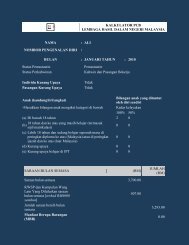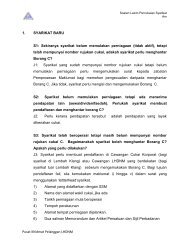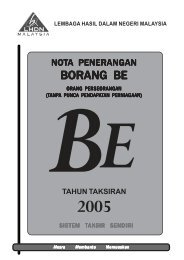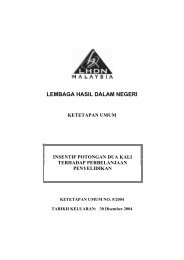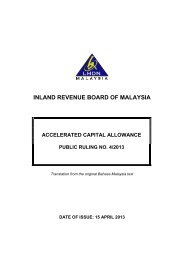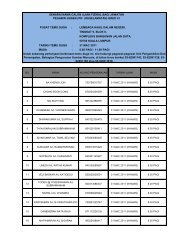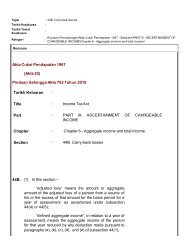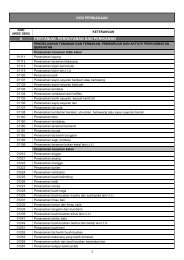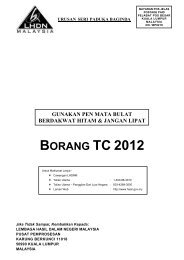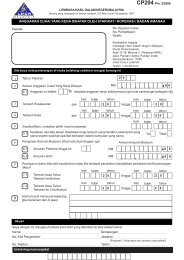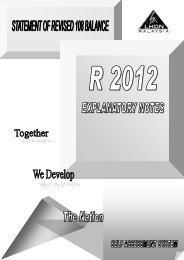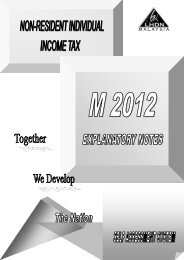Tan Sri Mohd Sidek Hassan
Tan Sri Mohd Sidek Hassan
Tan Sri Mohd Sidek Hassan
- No tags were found...
Create successful ePaper yourself
Turn your PDF publications into a flip-book with our unique Google optimized e-Paper software.
<strong>Tan</strong> <strong>Sri</strong> Abdul Rahman MamatMALAYSIA is a trading nation and its basic trade policy is to promotethe development of a liberal and fair global trading environment.At the international level, this work is done largely through the WorldTrade Organisation.But progress on this front has been slow. So, like many other countries, Malaysiahas resorted to concluding regional and bilateral free trade agreements (FTAs) tocomplement its efforts at the multilateral level.FTAs provide quicker and higher levels of market access between signatories.Traditionally confined to trade in goods, FTAs nowadays include trade inservices. They also address issues relating to investment, intellectual propertyrights, competition policy and industrystandards.The establishment of the Asean FreeTrade Area (Afta) in 1993 was the firstsuch initiative undertaken by Malaysia. TheAsean Economic Community will comeinto being in 2015 and Afta will facilitatethe free movement of goods, services,investment, skilled labour and a freer flowof capital, among member countries.To date, Malaysia has concluded bilateralFTAs with Japan, Pakistan and New Zealand,and is actively negotiating with Chile, Indiaand Australia. Together with other Aseanmembers, Malaysia has concluded regionalFTAs with China, South Korea, Japan, Indiaand Australia-New Zealand. Negotiationsbetween Asean and the European Union(EU) are paused, pending resolution of theEU’s position on Myanmar.The record showsthat Malaysia’s tradeperformance with its FTApartners has improvedfollowing the conclusion ofthese agreements. Exportsto China, for instance,increased from RM42.7bilin 2006 to RM63.2bil in2008, while trade withPakistan expanded fromRM4.3bil in 2007 toM5.7bil in 2008.The record shows that Malaysia’s tradeperformance with its FTA partners hasimproved following the conclusion of theseagreements. Exports to China, for instance, increased from RM42.7bil in 2006 toRM63.2bil in 2008, while trade with Pakistan expanded from RM4.3bil in 2007 toM5.7bil in 2008.In the case of Japan, there has been an improvement in the terms of trade, withMalaysia recording a trade surplus for the first time in a decade. In 2008, the145



